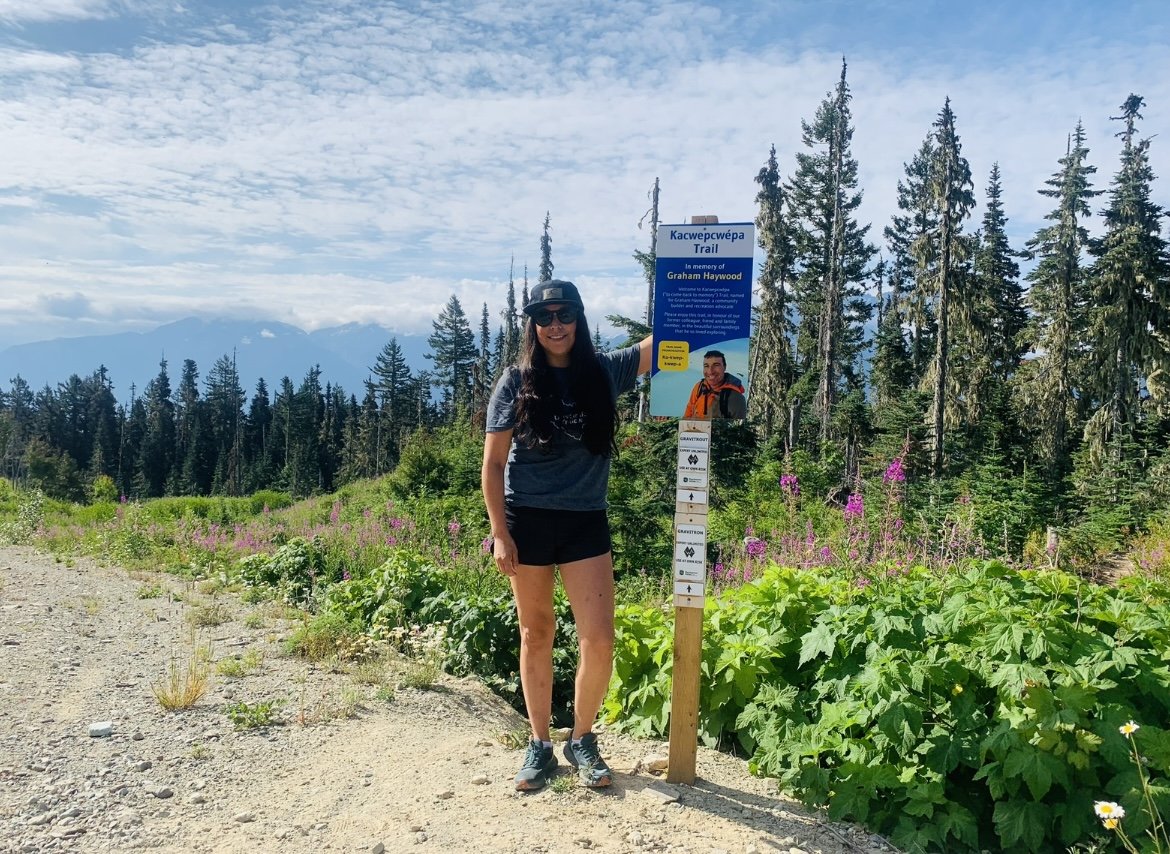Future of Recreation: Recreation and reconciliation
Two experts weigh in on how recreation groups can be allies in reconciliation
From access to nature to apps and AI, the evolution of trail construction to electric power, this story is part of a series of articles looking at how recreation will change and evolve over the short and long term.
There is no word in Ucwalmícwts, the Líl’wat Nation’s language, for recreation.
“We never played outside. We survived outside,” said Roxanne Joe, the lands and resources project coordinator for the Líl’wat First Nation, whose territory surrounds the town of Pemberton. “I think that’s where the disconnection comes from with the recreation community.”
Joe was speaking during the Outdoor Recreation Council of B.C.’s January webinar titled Reconciliation and recreation: Indigenous perspectives. She and Saya Masso, the land and resource manager for the Tla-o-qui-aht First Nation, discussed how recreation groups can work with First Nations and be their allies in reconciliation. The main message: it’s a relationship-building process that begins and ends with listening.
“We want to be approached with respect and with consent,” Joe said. “We are tired of being trumped by privilege and being an afterthought when it comes to activities involving our territories.”
For recreation groups that want to build infrastructure, hold events or seek permission to travel on their territory, the best first step is to reach out to the Nation directly. And before going to the regional or provincial government. Governments are increasingly encouraging this order of approach, and it shows a respect for the First Nation’s enshrined rights, Joe said.
“That way, you are developing a good relationship right away and telling us what your plan is within our territory,” she said. “Down the line, it can speed up the process.”
For less intrusive requests, like an event or race, someone like Joe or Masso may provide informal consultation or approval. For more involved requests, the heads up means the Nation is ready when the formal proposal lands on their desk.
But recreation groups also need to be patient, Joe said. Many Nations are managing record volumes of requests and referrals. In addition, there can be more going on behind the scenes than proponents realize. Capacity issues, specialist availability, cultural protocols or even extreme weather can slow things down.
“For engagement to be meaningful, continued communication and waiting is the right thing to do,” she said. “It takes as long as it takes.”
Saya Masso said his Nation views all user groups as stakeholders and considers their requests with respect. But their needs “fall second to our interests, whether it’s to protect a sacred site or to protect an area for fisheries.”
The Tla-o-qui-aht like to work with user groups, over individuals, because they can establish protocols and best practices for using their territory. For instance, they are one of dozens of Nations who have worked with BC Marine Trails to identify good camping and rest spots along the coast. And just as importantly, sensitive areas to steer paddlers away from. With tourism companies, the Tla-o-qui-aht have signed protocols that provide access to areas most of the time in exchange for giving the Nation privacy for ceremonies or harvesting activities when they request it.
“It should be a collaborative and cooperative relationship,” Masso said. “There’s a lot to be done in elevating the role and presence of First Nations in all aspects of land use.”
A good model is the Tla-o-qui-aht’s Tribal Park Allies program. More than 125 Tofino businesses share the Tla-o-qui-aht story and donate to the Nation’s Guardian program and other community services.
It’s an example of reconcili-action (putting action into reconciliation) and an acknowledgement of a Nation’s right to benefit from its territory. Masso prefers a financial “land acknowledgement” like this, over words, which are often just a check box on an agenda.
“I know a lot of users have the right mindset that they want to respect the land and the stewardship that First Nations have done,” Masso said. “These are unceded lands. There’s never been a treaty. We survived the banning of the potlatch and the residential schools. We have a Crown to Crown relationship saying we should be deriving benefits from the use of these lands. So just, please, think of that when you’re thinking about a land acknowledgement.”
Often recreation and First Nations want the same things and deal with the same issues. The Tla-o-qui-aht Guardians spend a lot of time patrolling backroads in their territory, cleaning up garbage, policing random camping and educating off-road vehicle users. It’s reminiscent of the work the Four Wheel Drive Association of BC does throughout the province.
Sometimes building a relationship with First Nations may also mean giving up access.
Last summer, the Líl’wat Nation and its neighbour, the N’Quatqua First Nation, grew concerned about the impact of crowds at Pipi7iyekw, also known as Joffre Lakes Provincial Park. It’s a sacred and important harvesting area to both Nations, but the crowds made it hard for the Nations to conduct their traditional practices. The two Nations decided to close the park from late August until National Truth and Reconciliation Day, September 30th.
“Without the crowds, it was really awesome to see so many families taking the children out there,” Joe said. “For many of them, it was their first time at Pipi7iyekw, and they’ve lived here their whole lives.”
Closing the park was a statement and an invitation to listen.
“This space is ours and always was ours,” Joe said. “We know the land and want to protect every aspect of our Nation’s territories.”


